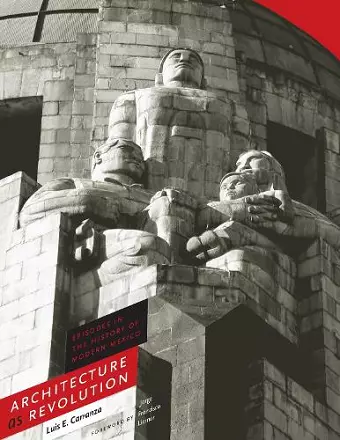Architecture as Revolution
Episodes in the History of Modern Mexico
Luis E Carranza author Jorge Francisco Liernur editor
Format:Hardback
Publisher:University of Texas Press
Published:1st Jul '10
Currently unavailable, and unfortunately no date known when it will be back

A richly illustrated social and cultural history of post-revolutionary Mexican architecture
The period following the Mexican Revolution was characterized by unprecedented artistic experimentation. Seeking to express the revolution's heterogeneous social and political aims, which were in a continuous state of redefinition, architects, artists, writers, and intellectuals created distinctive, sometimes idiosyncratic theories and works.
Luis E. Carranza examines the interdependence of modern architecture in Mexico and the pressing sociopolitical and ideological issues of this period, as well as the interchanges between post-revolutionary architects and the literary, philosophical, and artistic avant-gardes. Organizing his book around chronological case studies that show how architectural theory and production reflected various understandings of the revolution's significance, Carranza focuses on architecture and its relationship to the philosophical and pedagogic requirements of the muralist movement, the development of the avant-garde in Mexico and its notions of the Mexican city, the use of pre-Hispanic architectural forms to address indigenous peoples, the development of a socially oriented architectural functionalism, and the monumentalization of the revolution itself. In addition, the book also covers important architects and artists who have been marginally discussed within architectural and art historiography.
Richly illustrated, Architecture as Revolution is one of the first books in English to present a social and cultural history of early twentieth-century Mexican architecture.
ISBN: 9780292721951
Dimensions: 279mm x 216mm x 25mm
Weight: 1048g
255 pages